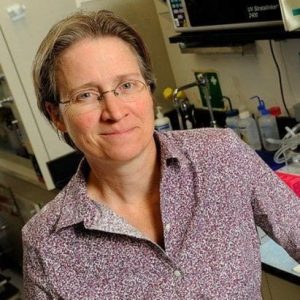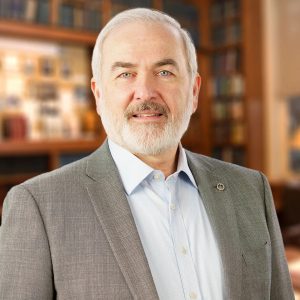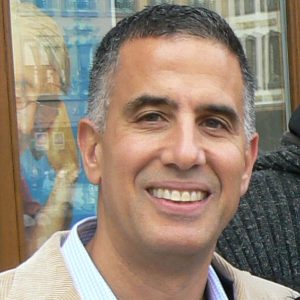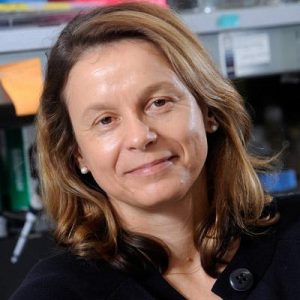External Leadership Council
Formed in 2023, the External Leadership Council comprises leading experts in RNA science who help shape our overall strategy in support of the center’s mission. Additionally, they provide strategic guidance and scientific advice and support us in growing our professional networks through introductions to contacts in industry, academia and government.

President, Medical Director, Center for RNA Therapeutics, Chief Translational Officer, Houston Methodist Academic Institute
jpcooke@houstonmethodist.org
Dr. John P. Cooke is the Chair of the Department of Cardiovascular Sciences at the Houston Methodist Research Institute, Director of the Center for Cardiovascular Regeneration, and Medical Director of the RNA Therapeutics Program in the Houston Methodist DeBakey Heart and Vascular Center in Houston, Texas.
He trained in cardiovascular medicine and obtained a Ph.D. in physiology at the Mayo Clinic. He was recruited to Harvard Medical School as an assistant professor of medicine. In 1990, he was recruited to Stanford University to spearhead the program in vascular biology and medicine, and was appointed professor in the Division of Cardiovascular Medicine at Stanford University School of Medicine, and associate director of the Stanford Cardiovascular Institute until his recruitment to Houston Methodist in 2013.
Dr. Cooke has published over 500 research papers, position papers, reviews, book chapters and patents in the arena of vascular medicine and biology with over 30,000 citations. He has served on national and international committees that deal with cardiovascular diseases, including the American Heart Association, American College of Cardiology, Society for Vascular Medicine, and the National Heart, Lung and Blood Institute. He has served as president of the Society for Vascular Medicine, as a director of the American Board of Vascular Medicine, and as an associate editor of Vascular Medicine.

Bloomberg Distinguished Professor, Department of Biology, Johns Hopkins University
ragreen@jhmi.edu
Rachel Green received her B.S. in Chemistry at the University of Michigan in 1986. She performed her thesis work in biochemistry in 1993 in the laboratory of Jack Szostak at Harvard University where she focused on structural and functional analysis of catalytic RNAs and the implications of such molecules for the earliest evolution of life. As a postdoctoral fellow in UC Santa Cruz, she began her work on the ribosome with Harry Noller exploring the diverse functions of rRNA and tRNA in translation. In 1998, she began as an assistant professor in the Department of Molecular Biology and Genetics at The Johns Hopkins University School of Medicine and was promoted to full professor in 2007. Since 2000, her work has been supported by Howard Hughes Medical Institute (HHMI). Her laboratory focuses on diverse aspects of translation and its regulation in bacteria, yeast and higher eukaryotic systems – with a recent focus on defining the molecular mechanisms that specify the high fidelity of protein synthesis during translation.

Professor, RNA Therapeutics Institute & Program in Molecular Medicine, UMass Chan Medical School
Anastasia.Khvorova@umassmed.edu
Anastasia Khvorova, Ph.D., has more than two decades of experience pioneering oligonucleotide-based drug development. She began her scientific career in Moscow, where she completed her academic training and earned her doctorate in 1994. The following year, she moved to the United States, where she has conducted research at various universities and held senior positions in the pharmaceutical industry. She has co-founded several start-up companies.
Dr Khvorova has been a professor in the RNA Therapeutics Institute (RTI) and Program in Molecular Medicine at UMass Chan Medical School since 2012. She established the RTI Nucleic Acid Chemistry Center, which provides expertise in RNA chemistry to labs within and outside UMass Chan and is the only non-profit center in North America capable of synthesizing complex RNAs at scales necessary to support both in vitro and in vivo studies.
A prolific innovator, Anastasia holds more than 150 patents and is an elected fellow of National Academy of Inventors. She has authored more than 90 peer-reviewed publications, including seminal articles in Cell, Nature, and Nature Biotechnology (citation index exceeding 2000 per article) defining the field of RNAi drug design and development. Anastasia has served as director-at-large/scientific & research council chair of the American Society of Gene and Cell Therapy and currently is a director of the Oligonucleotide Therapeutics Society.

Professor, St. Giles Foundation Professor, Cancer Center Deputy Director of Research, Cold Spring Harbor Laboratory
krainer@cshl.edu
Prof. Adrian Krainer completed his undergraduate education at Columbia University in 1981, with a B.A. in Biochemistry. He then completed his Ph.D. in Biochemistry at Harvard University in 1986, in the lab of Prof. Tom Maniatis. After graduation, he became the first Cold Spring Harbor Fellow, and in 1989 he joined the faculty at Cold Spring Harbor Laboratory. He is currently the St. Giles Foundation Professor at CSHL, and the Deputy Director of Research of the CSHL Cancer Center. He is also a co-founder and Director of Stoke Therapeutics.
Adrian’s lab at CSHL uses multidisciplinary approaches to elucidate pre-mRNA splicing mechanisms and alternative splicing regulation. An important goal is to apply this knowledge to uncover the roles of defective splicing in genetic diseases and cancer. The lab also uses antisense technology to develop novel therapeutics that target pre-mRNA or mRNA to modulate gene expression post-transcriptionally. One notable application—in collaboration with Ionis Pharmaceuticals and Biogen—was the development of the antisense oligonucleotide nusinersen (Spinraza), which became the first approved drug for spinal muscular atrophy, a severe genetic disease that causes motor-neuron degeneration. Research from the Krainer lab has also implicated splicing alterations in cancer, and his lab is currently pursuing antisense-therapeutic approaches in the context of various cancers.
Adrian is a recipient of the Albany Medical Center Prize in Medicine and Biomedical Research, the Wolf Prize in Medicine, the Life Sciences Breakthrough Prize, the RNA Society’s Lifetime Achievement Award, the Reemtsma Foundation International Prize in Translational Neuroscience, the Speiser Award in Pharmaceutical Sciences, the Ross Prize in Molecular Medicine, the Gabbay Award in Biotechnology and Medicine, the Takeda Pharmaceuticals Innovators in Science Senior Scientist Award in Rare Diseases, and the Watanabe Prize in Translational Research. He served as President of the RNA Society, and is a member of the National Academy of Sciences, the National Academy of Medicine, the National Academy of Inventors, and the American Academy of Arts & Sciences.

Distinguished Professor, Cech-Leinwand Endowed Chair of Biochemistry, University of Colorado Boulder
Roy.Parker@Colorado.edu
Roy Parker is an Investigator with the Howard Hughes Medical Institute; Director, BioFrontiers Institute; Cech-Leinwand Endowed Chair of Biochemistry and Distinguished Professor at the University of Colorado Boulder. He has a joint appointment with the Department of Molecular, Cellular and Developmental Biology. He received his Ph.D. from the University of California, San Francisco and completed his postdoctoral work at the University of Massachusetts, Worcester. His research focuses on the biogenesis, translation, and degradation of eukaryotic mRNA and how cells regulate different steps in this process to modulate gene expression. He has served on, and chaired, the NIH CDF-1 study section, and co-organized the Nucleic Acids Gordon Conference (1997), the RNA Processing Meeting at CSHL (2001), and the 2004 FASEB Conference on Post-Transcriptional Control (2004). He is, or has been, on the editorial boards of MCB, Science, Cell, RNA, Nucleic Acids Research, and is an editor of the Journal of Cell Biology and eLife. He was the President of the RNA Society (2010). He is an elected Fellow of the American Academy of Arts & Sciences (2010) and Member of the National Academy of Sciences (2012).

Jauch Professor and Professor of Structural Biology, Stanford University
puglisi@stanford.edu
Jody Puglisi, Ph.D.
Joseph (Jody) Puglisi is Jauch Professor in the Department of Structural Biology at Stanford University School of Medicine. His work focuses on the biophysical and structural analysis of RNAs and RNA-protein interactions and his group use broad biophysical and biochemical methods to understand the interplay of structure and dynamics in a variety of systems, in particular translation. Born and raised in scenic New Jersey, he received a B.A. degree in Chemistry in 1984 from The Johns Hopkins University and a Ph.D. in Biophysical Chemistry from UC Berkeley in 1989 working with Ignacio Tinoco, Jr. After postdoctoral research in Strasbourg and MIT, he joined the faculty at UC Santa Cruz in Chemistry and Biochemistry in 1993. He moved to Stanford University in 1997, where he was Chair of the Department of Structural Biology from 2004 to 2014. He is a member of the U.S. National Academy of Sciences.

Huntington Sheldon Professor in Medical Discover, Professor of Molecular Biology and Genetics, Johns Hopkins School of Medicine
gseydoux@jhmi.edu
Dr. Geraldine Seydoux is the Huntington Sheldon Professor in Medical Discovery in the Department of Molecular Biology and Genetics at the Johns Hopkins University School of Medicine and an investigator with the Howard Hughes Medical Institute. Her work examines how early embryos develop into complex asymmetric structures comprising many cell types.
The Seydoux lab studies how single-cell embryos localize RNAs and proteins to pattern developmental potential. Currently, the lab is studying a new class of intrinsically-disordered proteins that scaffold RNA granules and regulate germ cell fate. The lab has also characterized an efficient, homology-dependent DNA repair pathway and developed methods for genome engineering.
Dr. Seydoux received her B.S. in biochemistry from the University of Maine at Orono in 1986, and completed her Ph.D. in molecular biology at Princeton University in 1991. After a postdoctoral fellowship in developmental biology at the Carnegie Institute of Washington, she joined the faculty of Johns Hopkins in 1995 as an assistant professor. She became an associate professor in 2000, and a full professor in 2005.
Dr. Seydoux’s work has garnered several awards, including a MacArthur Fellowship in 2001. She was elected to the American Academy of Arts and Sciences in 2013 and to the National Academy of Sciences in 2016. She assumed the role of vice dean for Basic Research at the Johns Hopkins School of Medicine in 2017.
